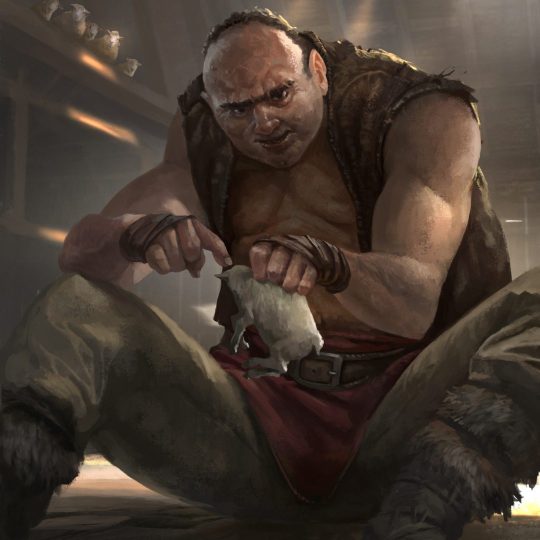Character Progression – Awarding Experience and Rewarding Players
 There are about as many different ways to handle character progression as there are role-playing systems, but most commonly they revolve around one tantalizing resource – experience points. It might go by different names or work differently from system to system, but at the end of a session most players are excited to rack up some XP. Loot and items may come and go, but XP is a permanent reward, one which drives the game forward and works as a proverbial ‘carrot on a stick’ for your players.
There are about as many different ways to handle character progression as there are role-playing systems, but most commonly they revolve around one tantalizing resource – experience points. It might go by different names or work differently from system to system, but at the end of a session most players are excited to rack up some XP. Loot and items may come and go, but XP is a permanent reward, one which drives the game forward and works as a proverbial ‘carrot on a stick’ for your players.
So how, as GMs, do we hand out this resource? Some GMs meticulously calculate exactly
how many points each character receives, while others eschew the XP system entirely and
give out levels at narrative milestones. There’s no right or wrong way to handle character
progression, but it is important to make sure that whatever method you’re using is right for
the players in your group, and that everyone’s on board.
It is of course simplest to grant level-ups at narrative landmarks; it reduces bookkeeping,
helps the GM control the pace of the campaign, and ensures that the group advances at a
consistent pace. However, simply granting levels or preset chunks of XP can reduce the
players’ sense of achievement for their actions, making it seem as though no matter what they do, they’re always going to level up at a preset time. Not all players will feel this way, but for those who do it can be a huge slap in the face to discover that they were destined to gain exactly enough XP to level up at the end of an adventure, no matter how they played it.
While it does require some additional effort from the GM to assign XP values to events and encounters, I think there’s a lot of value in it. Granting ‘packets’ of XP can incentivize extra exploration, interactions and role-playing; if players smell the promise of XP, they’ll often chase it. Conversely, if they know that their leveling is more or less preset, there’s less
incentive for them to push the boundaries of the main story and explore side quests or other options.
Tracking XP also gives players something to look forward to and lets them monitor their progress. While this isn’t important to everyone, I know my players and I live for the moment that we can triumphantly add up our XP and find that we’ve hit the next level; there’s a huge sense of achievement in knowing that all your actions have added up and culminated in a power increase.
Bear in mind that even if you decide to track numerical XP, nothing is stopping you playing
with the numbers to make the characters progress a bit faster or slower if needed. Narrative
landmarks or completion of story arcs are good places to play with XP rewards without
compromising the value of the players’ actions. Don’t be afraid to throw the party a little
extra when they go above and beyond your expectations, or when an encounter challenges
them more than you thought it might; XP should represent how much the characters
learned and grew from a situation, and there shouldn’t be hard and fast rules governing
exactly how much you’re allowed to give out.
Within groups which track XP, there are a huge number of ways to allocate it, such as
granting different XP to different characters, bonus XP for exceptional actions or role-playing, XP penalties, there are even GMs who go so far as to grant different XP to characters based on how much they contributed to a fight or challenge.
Using XP as a reward for individual feats or role-playing can be gratifying, and make players feel as though they’ve stood out, but can also make others feel left out or like they aren’t as important. I’ve seen games where one player consistently receives bonus XP for performing well or role-playing and everyone else misses out; players shouldn’t feel like they’re competing against each other, and I think that handing out XP rewards individually can breed a negative atmosphere at the table, especially if one player is always missing out.
Characters gaining XP at different rates can also cause a level imbalance within the party.
This is rarely a big issue, but the power gap can become large if XP handouts are often
inconsistent. Some players may not be happy with being less powerful than their allies,
especially if that power was given out at the whim of the GM. It’s certainly not something to
definitely avoid, but something to be careful with. Being rewarded with bonus XP does feel
good though, so when I do it in my games I tend to award extra XP to the party as a whole,
and let them know that their actions have netted them all a bonus.
Thankfully, there are a heap of alternative rewards for great role-playing or awesome actions
in game. In my 5e games I’ve taken to handing out hero points, which work like bardic
inspiration dice, and you can play with this idea to adapt it to any system. Another
rewarding way to acknowledge particularly great role-playing or description is to give the
player a bonus to the action that they’ve taken. For example, if someone pulls off a really
cool and well described maneuver in a fight, you could give them a bonus on the attack or assign a special effect on hit.
As long as your players don’t try to abuse it, this method can inspire players to think outside the box and do more than just roll dice and see what happens.
inspire players to think outside the box and do more than just roll dice and see what happens.
Most importantly of all, good role-playing can and should be rewarded with appropriate in-game role-playing rewards which may not immediately make themselves apparent, for example prestige, respect, connections, alliances and so on. Good role-playing is often its own reward, and there are many interesting ways to make it have an impact on your game.
I’ve outlined my preferred methods, so what are yours? I’d love to hear in the comments
how you run character progression in your games. At the end of the day, a group should use
whatever system suits their players best; they’re the ones affected by it, after all.
Until next time, get some XP, level up, and stay nerdy!












No Comments